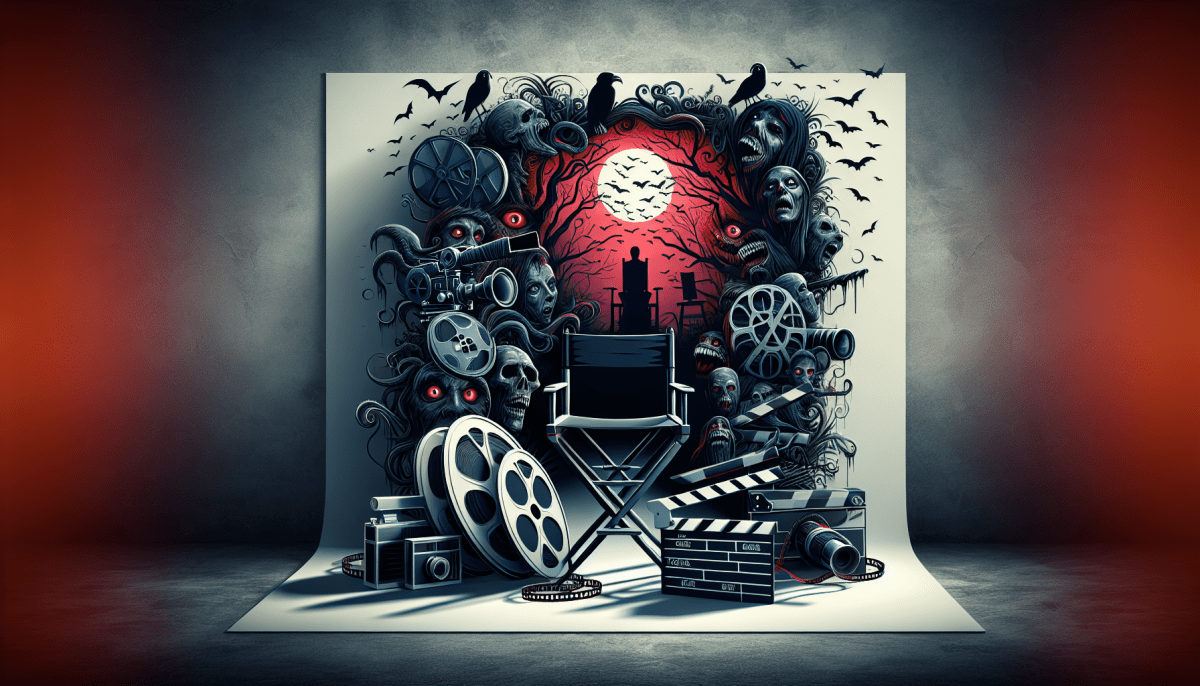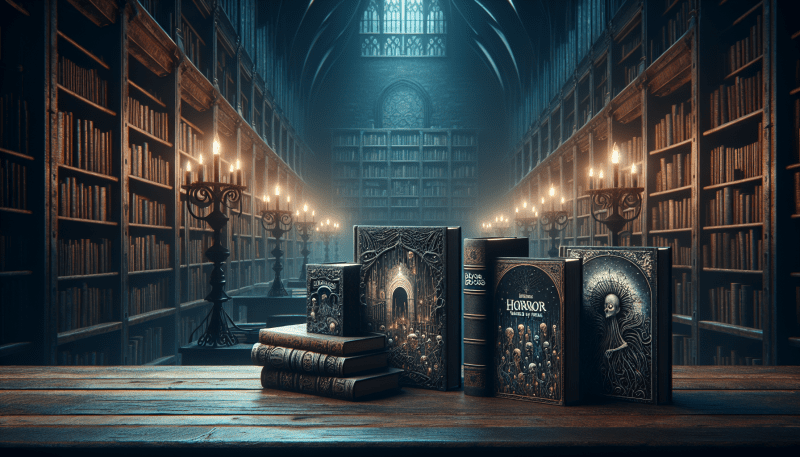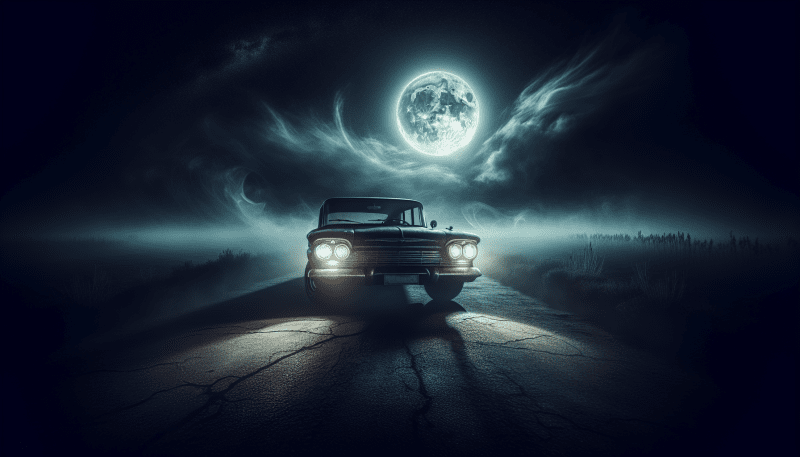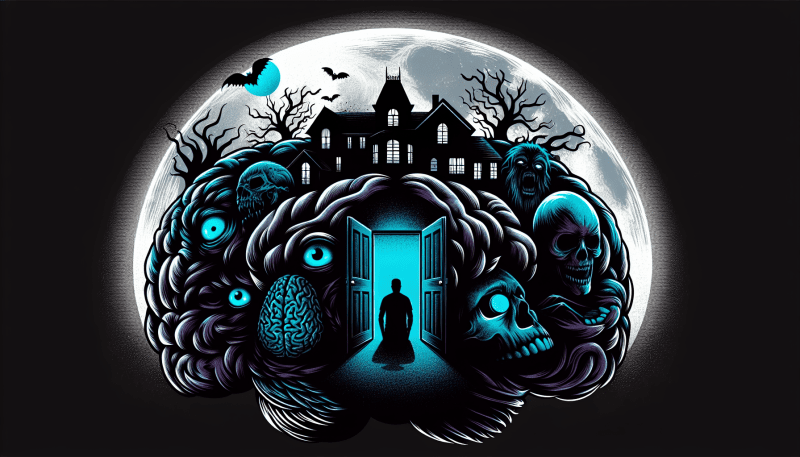The Top 10 Horror Directors You Need to Know
Welcome to the blood-soaked world of horror directors—the twisted minds behind the most bone-chilling scenes in cinema history. Whether you're a die-hard fan of horror films or just dipping your toes into the dark, this guide dives into the most influential horror directors of all time. From psychological nightmares to supernatural hauntings, these horror director legends shaped the genre and terrified audiences worldwide.
Below, we explore the top 10 horror directors you need to know, celebrate their scariest creations, and look at how they redefined horror films forever.
Table of Contents
1. Alfred Hitchcock – The Master of Suspense
No list of horror directors would be complete without Alfred Hitchcock. Though often associated with thrillers, his influence on horror films is undeniable.
Key Horror Film: Psycho (1960)
Hitchcock’s infamous shower scene changed horror forever, proving that terror could be psychological, subtle, and still leave you scarred.
He pioneered many techniques still used by horror directors today, including suspense-building camera angles, misleading story arcs, and sound design that crawls under your skin.
2. John Carpenter – The King of the Slasher
John Carpenter is the horror director who gave us Michael Myers, one of the most iconic killers in cinema.
Key Horror Film: Halloween (1978)
Carpenter’s minimalist style—synth-heavy music, tight framing, and creeping tension—became the blueprint for slasher films.
He's also behind The Thing (1982), a masterclass in paranoia and body horror. Carpenter’s name is synonymous with the golden age of horror films.
3. Wes Craven – Nightmare Architect
Wes Craven knew how to haunt our dreams—literally. He introduced a horror icon that stalked us in our sleep.
Key Horror Film: A Nightmare on Elm Street (1984)
Freddy Krueger is one of the most imaginative monsters ever created, and Craven made sleep itself a terrifying concept.
Craven also reinvented horror with Scream (1996), blending slasher thrills with smart meta-commentary on horror films themselves. That’s the mark of a true horror director.
4. George A. Romero – The Zombie Pioneer
Romero gave birth to the modern zombie as we know it. Before him, the undead were just folklore. After him, they were a horror institution.
Key Horror Film: Night of the Living Dead (1968)
Romero didn’t just terrify—he tackled race, consumerism, and social collapse through his horror films.
His gritty, low-budget style showed aspiring horror directors that you didn’t need Hollywood backing to scare the hell out of audiences.
5. Tobe Hooper – Chainsaw Chaos
Tobe Hooper’s work is dirty, grimy, and terrifyingly real. He took horror out of haunted mansions and into America's desolate backyards.
Key Horror Film: The Texas Chain Saw Massacre (1974)
Shot like a documentary, this film is a relentless descent into madness. Hooper's portrayal of violence felt raw and unscripted, leaving audiences breathless.
He later teamed up with Steven Spielberg on Poltergeist (1982), proving his versatility in both slasher horror and supernatural films.
6. Dario Argento – Giallo Genius
Argento brought art-house flair to horror films. Known for his use of color, music, and surreal violence, this horror director turned gore into visual poetry.
Key Horror Film: Suspiria (1977)
With its haunting soundtrack by Goblin and dreamlike atmosphere, Suspiria is a fever dream that never ends.
Argento helped define the Italian Giallo subgenre, blending mystery, slasher, and supernatural horror into a uniquely European vision.
7. James Wan – Modern Paranormal Master
James Wan revived the haunted house genre and brought supernatural horror into the 21st century with a terrifying bang.
Key Horror Film: The Conjuring (2013)
Wan is a modern horror director who understands how to manipulate silence, timing, and dread.
From Saw (2004) to Insidious and The Conjuring universe, his horror films are tightly plotted, terrifyingly atmospheric, and packed with jump scares that actually work.
8. Ari Aster – New Age Terror
Ari Aster is one of the newest horror directors on this list, but he’s already made a seismic impact.
Key Horror Film: Hereditary (2018)
Aster brings emotional trauma into the horror space, using grief as a gateway to the supernatural.
His films are slow burns, rich in symbolism, and packed with existential dread. Horror films like Midsommar prove that daylight can be just as terrifying as the dark.
9. Jordan Peele – Horror With a Message
Jordan Peele burst onto the horror scene with a social critique wrapped in terrifying packaging.
Key Horror Film: Get Out (2017)
This Oscar-winning film used the horror genre to dissect racism and liberal hypocrisy.
Peele's follow-up, Us (2019), tackled identity and duality. As a horror director, he blends genre mastery with razor-sharp social commentary.
10. Guillermo del Toro – Gothic Dreamweaver
Del Toro is the fantasy-horror maestro of our time. His work is both grotesque and beautiful, often merging the supernatural with real-world tragedy.
Key Horror Film: Pan’s Labyrinth (2006)
This film blends fairy tale with fascism, showcasing Del Toro’s unmatched ability to make monsters feel heartbreakingly human.
His horror films often feature misunderstood creatures, lush gothic design, and a deep sense of melancholy.
Final Thoughts: The Legacy of Horror Directors
The horror genre wouldn't be what it is today without these visionary horror directors. Whether they’re crafting slashers, ghost stories, or psychological thrillers, these filmmakers push boundaries and redefine fear with each frame.
Horror films are more than cheap thrills—they’re cultural mirrors, emotional catharses, and sometimes, social revolutions. Thanks to these horror directors, we’ve been gifted with decades of unforgettable nightmares.
So next time you watch a horror film, take a moment to appreciate the creative forces behind the fear. Chances are, you’re witnessing the work of a legend—or perhaps the rise of a new horror director ready to make their mark.



